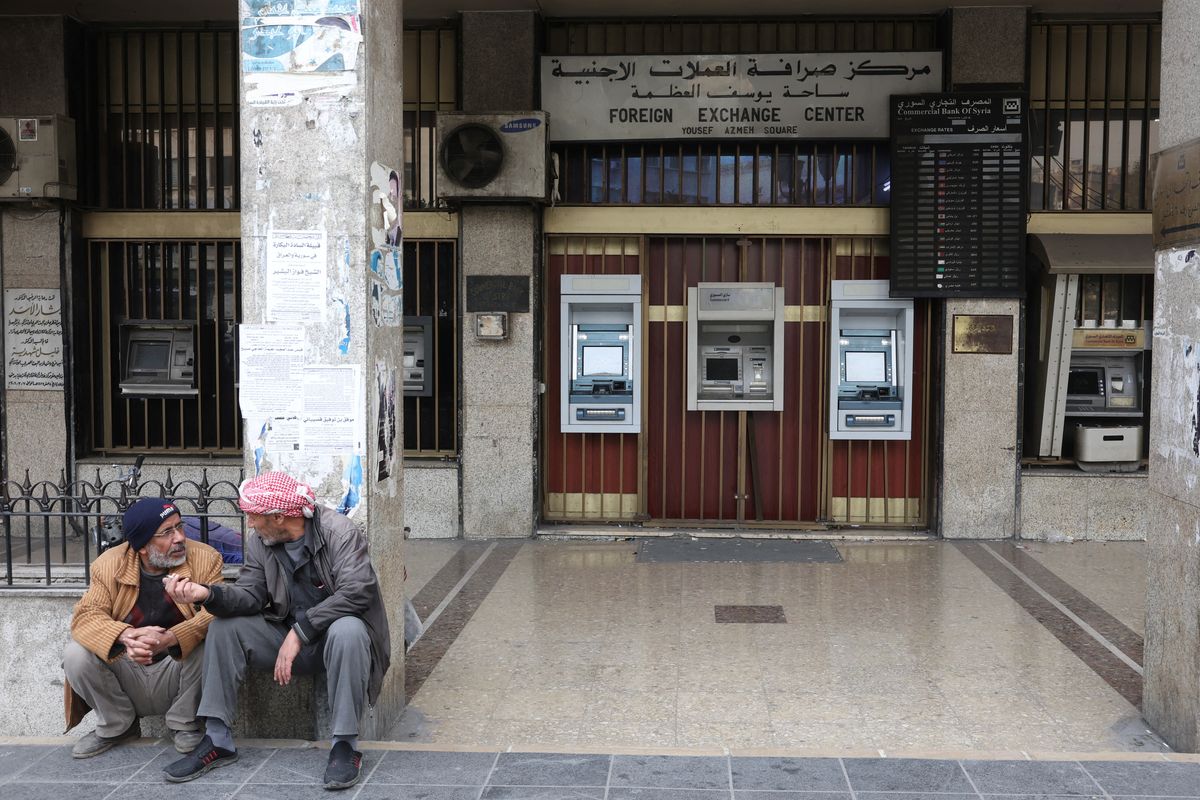Public sector salaries in Syria to increase by 400%, finance minister says
The increase is estimated to cost 1.65 trillion Syrian pounds: about $127 million at current rates
Reuters
News Agency Partner
Reuters is a leading source of news and information, delivering fact-based reporting and expert analysis on international events and trends.

People sit near ATM machines in Damascus
Reuters
Majority of Syria's population live below the poverty line
Public sector in Syria has 1.3 million registered employees
Public sector workers' wage was $25 a month
Syria's finance minister announced Sunday that the government will increase salaries for many public sector employees by 400% next month after completing an administrative restructuring of ministries to improve efficiency and accountability.
The pay hike, estimated to cost 1.65 trillion Syrian pounds, or about $127 million at current exchange rates, will be financed through existing state resources, regional aid, new investments, and efforts to unfreeze Syrian assets abroad.
“This is the first step toward an emergency solution to the country’s economic challenges,” Finance Minister Mohammed Abazeed said in an interview with Reuters. He added that wages for public sector staff this month would be paid this week.
The measures are part of a broader strategy by Syria’s caretaker government to stabilize the economy after 13 years of conflict and sanctions.
Under former President Bashar al-Assad, public sector salaries were about $25 a month, leaving employees below the poverty line alongside most of the population, Abazeed said.
The pay increase will follow a review of up to 1.3 million registered public sector employees to eliminate fictitious workers. It will benefit employees with sufficient expertise, academic qualifications, and skills deemed necessary for reconstruction.
Post war liquidity challenges
Syria’s state treasury faces liquidity challenges stemming from years of war. The central bank’s reserves consist mostly of Syrian currency, which has significantly depreciated. However, Abazeed said the new government has secured commitments of assistance from regional and Arab countries.
“The launch of investments in the near future will also benefit the treasury and help finance this salary increase,” he said, adding that the central bank has enough funds to cover the next few months.
The government expects to recover up to $400 million in frozen Syrian assets overseas, which could contribute to initial funding for the raise.
Syria’s caretaker government is also considering tax reforms, including exempting taxpayers from penalties and interest. A draft overhaul of the tax system is expected within four months, aiming to achieve fairness for all taxpayers.
“By the end of this year, we expect to have a well-designed tax system that addresses the interests of all taxpayers,” Abazeed said.










Comments
See what people are discussing